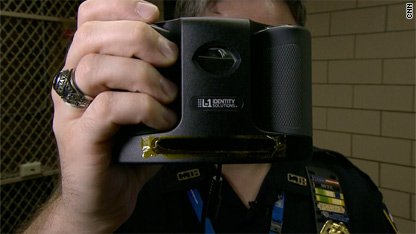Scammer
Banned

New York police are using new iris scanners as part of an initiative announced earlier this week.
New York -- In a move intended to better track criminal suspects, New York City's finest are now photographing the eyes of those they haul in.
Adding eye scans to a list of police identification methods that include mug shots and fingerprinting, New York rolled out a fleet of new iris scanners in an initiative announced earlier this week, city officials said.
The new measures are part of an effort to improve security and safeguard identities, said Police Commissioner Raymond Kelly.
"It's a big, complex system," Kelly said. "We want to make sure it's the right person when they get in front of the judge, so this is a common sense way to do that."
Police turned to scanners after two recent incidents in which prisoners escaped using false identities.
Upon arrest, suspects now will be required to look directly into binocular-like devices that photograph the iris -- the circular diaphragm forming the colored portion of the eye -- and store the image in a police database.
When the suspect appears in court, police will match the scan to see whether the image corresponds with records in the system, Kelly said.
But the tiny cameras are drawing opposition from civil liberties groups who call the new police measures excessive.
"The police department is hitting a fly with a sledgehammer," said Steven Banks, attorney in chief of the city's Legal Aid Society. "There's been an extensive legislative debate in New York state in which the legislature only permits the police department to collect DNA evidence in certain kinds of cases. So it's incumbent upon the police department not to find a whole new technology and then forge ahead without any legislative authority."
Proponents of the devices say the new initiative falls within existing identification measures.
"We are authorized to take pictures," Kelly said. "This is just a picture of your iris. ... We're matching that iris to see if you're the same individual. Our lawyers say we don't need any mandate to do it."
Twenty-one machines will be set up throughout the city, Kelly said, which includes scanners employed in Manhattan earlier this week.
Police put the price tag at $500,000, paid for through a U.S. Department of Homeland Security grant, which raises the question whether the device could be potentially used an anti-terrorism tool.
"That's not our intention here, but it has potential," Kelly said. "Just like all technology has potential for growth, for innovation, for development," he added. "But right now, this is simply a process to help us better identify someone and prevent us from making mistakes."
